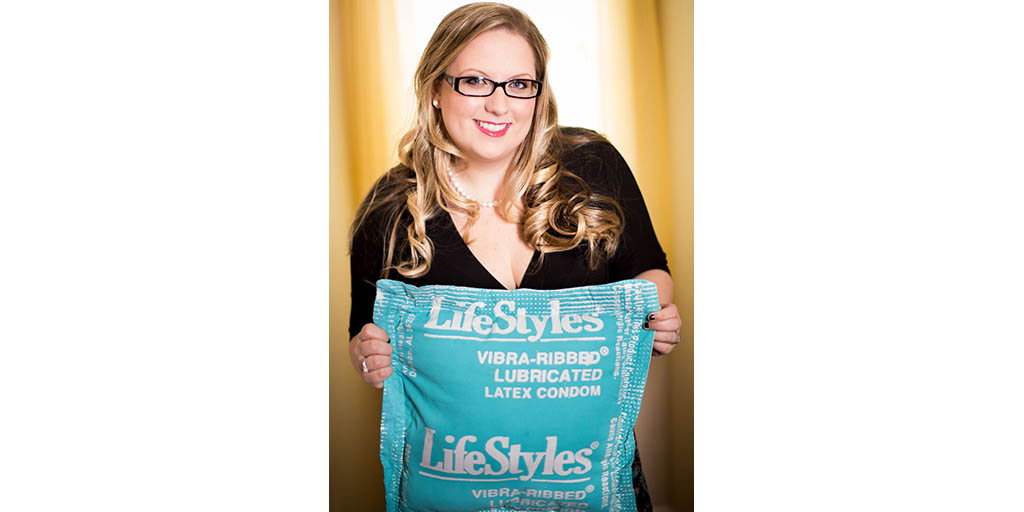The sex doctor is in
 CREDIT: DR. JUSTINE SHUEY
CREDIT: DR. JUSTINE SHUEYDr. Justine Shuey, sexologist extraordinaire, poses with a giant plush condom, one of her many distinguished educational tools.
All Justine Shuey wanted in the fifth grade was to be a good student who paid attention in class. When she showed a high aptitude for sexed after acing her class’s final exam, she shrugged the success off as the result of being overly studious.
Little did Shuey know she would grow up to be a certified expert with a handful of credentials on the topic.
She probably didn’t expect to be using genital-shaped pillows as educational tools, either.
Shuey, who is now working on her second doctorate in human sexuality, is slated to visit Fanshawe College to discuss the ins and outs of all things related to sex, love, consent, communication and healthy relationships.
According to the sexologist, this won’t be your typical talk about the birds and the bees.
“We’re going to have fun. You’re going to learn some serious stuff but you’re going to be laughing and having a good time,” said Shuey. “The reality is if people are laughing, they’re learning.”
Along with showing off her prized vulva puppet and penis pillow props, Shuey will give all attendees the chance to anonymously text in questions for her to answer throughout the presentation.
After over 12 years of teaching human sexuality around the globe, it may prove challenging to pose a question Shuey hasn’t already seen.
“At one point I had 37 different variations of ‘can I get pregnant’,” Shuey said of the questions she received at a particular event. “If I have sex upside down, if I have sex in a pool, if I swallow, if I have anal sex. I also get questions about the G-spot or consent or sexual assault, or resource-related questions. LGBTQ stuff or asexuality – really, they’re all over the spectrum.”
Shuey acknowledged that many people may not be receiving a thorough sexual education from traditional resources. Although completely transforming certain attitudes towards sex may always be a struggle, she said that she has seen progress when it comes to issues pertaining to the LTGBQ community.
“It’s not that [people] are talking about it differently, it’s that they’re actually talking about it,” she said.
“I’ve seen since I started doing this work on college campuses 12 years ago [that] there are way more conversations around those subjects as well as inclusion happening.”
Shuey has always been comfortable talking about sexuality, but acknowledges that might not be the case for everyone else attending her talks. However, she said that’s what makes her job as a sexologist so important.
“Even as little kids, our parents make up words for our genitals. People need to be comfortable talking about it and there’s just not a lot of that happening in our society,” Shuey said.
“It’s normal, it’s healthy and it affects everyone. We’re all sexual beings throughout the entire lifespan, we all just express our sexuality in a variety of ways and engage in sexuality in a variety of different ways. We need to learn about it and make informed and educated decisions about our body and our sexuality.”
Shuey’s presentation will take place at Forwell Hall at 12 p.m. on Sept. 20.
















